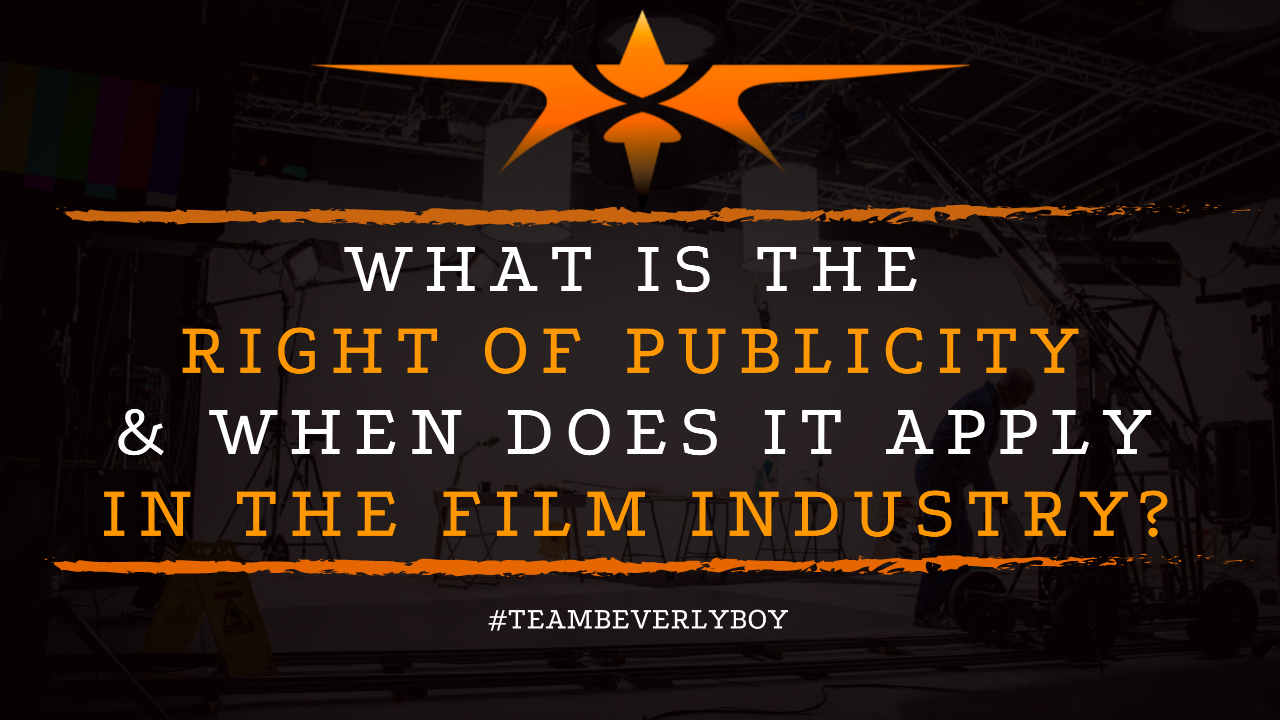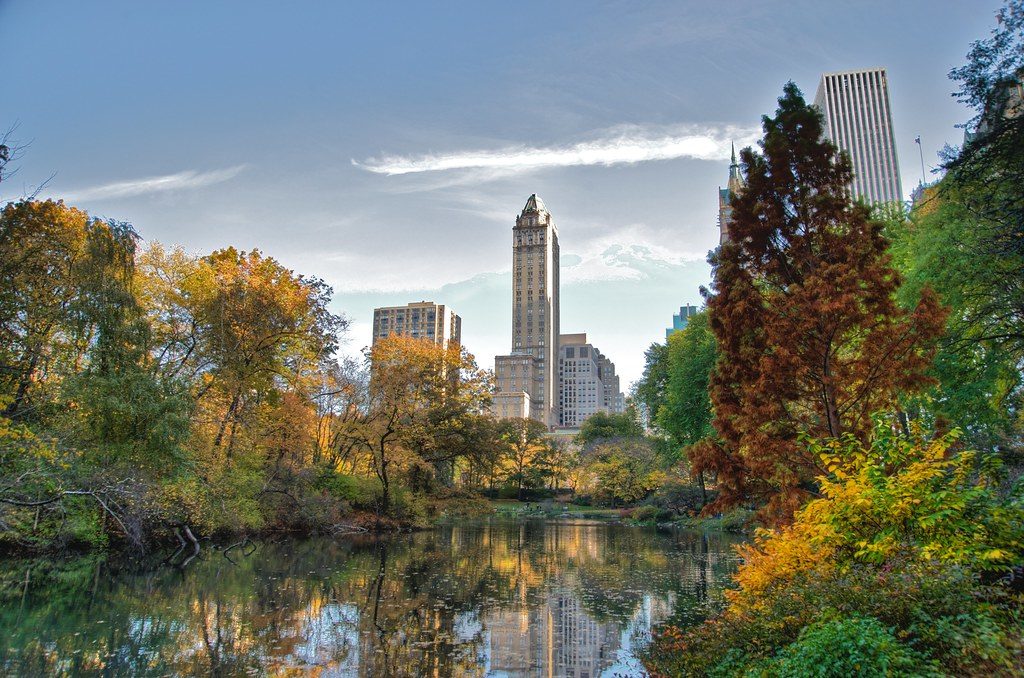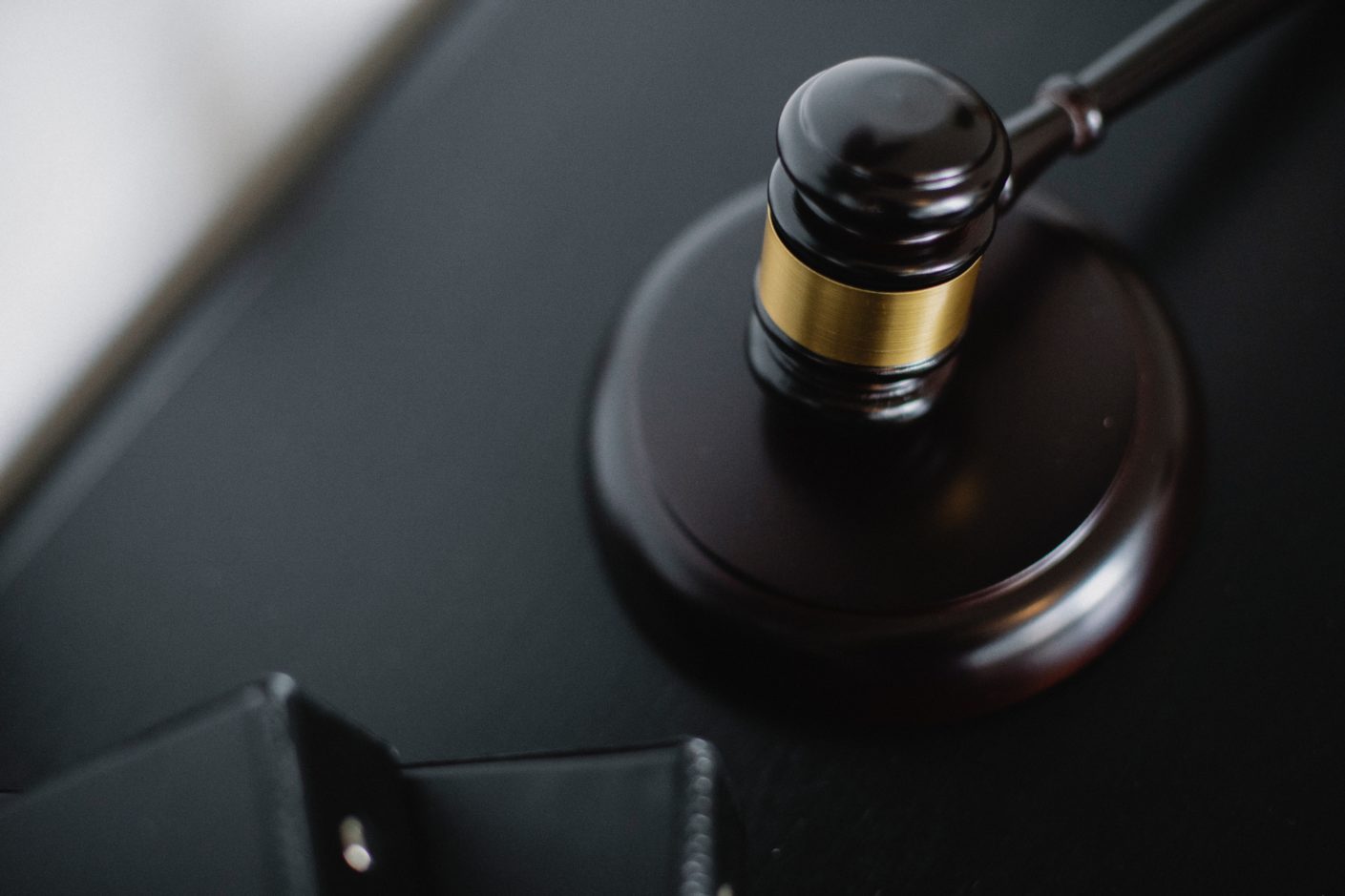
What is the Right of Publicity & When Does it Apply in the Film Industry?
The film industry is an incredibly powerful, competitive, and highly sophisticated field. It requires individual filmmaker responsibility and focus. Especially when it comes to the privacy and the publicity of others. Whether you’re a beginning filmmaker that’s just now facing the unique rules and regulations associated with filming in a new location or state. Or if you’ve faced challenges relative to privacy or publicity concerns on past projects. It’s important for you to understand the right of publicity and what it means for your film production. But what is the right of publicity, exactly?

What is the Right of Publicity?
The right of publicity represents a key concept. It essentially states that people have a right to control who makes money off of their name or their image.
Now, you might be thinking that this must only be applicable to celebrities. After all, who could possibly profit from or otherwise make money off of footage that you’re involved in?
However, the right of publicity does NOT only apply to celebrities and it’s not only about profit.
Protection from Exploitation
Thus, the right of publicity protects individuals from unauthorized commercial exploitation of their name, recognizable personality traits, or likeness.
Right of publicity lawsuits most frequently arise out of a result of unpermitted use of an individual’s persona in commercial advertisements.
These types of lawsuits generally do not apply to the use of someone’s name, image, or persona in legitimate news. Or in expressive art forms like video games.
A Scenario to Consider

Consider a situation in which you’re in a public place, like a park. And you are filmed by a professional filmmaker that is there capturing b-roll footage.
However, the filmmaker does not ask your permission before filming you! He just captures the footage that he’s there for. Your face and activities included. Then he calls it a day.
That footage is then taken to an editing department to work with the footage. It ultimately uses your face and your activities in a particular part of a film that winds up becoming insanely popular.
In fact, the film makes a HUGE impression in theaters! It draws in millions of dollars for the filmmaker. And your face? It becomes the most widely recognized face in town.
Ask Yourself…
What do you do? What can you do? Do you have any control over what’s happening? What if the details of the film are against your morals or the beliefs that you have?
Say your friend came to you. She’s saying that she doesn’t feel comfortable knowing that you were in that film. Particularly one on a topic so far out of line from what she thought were your beliefs.
You Have a Right of Publicity!
Can you see how a filmmaker’s decision to use footage of you and your image in a film without your permission could be a potential problem?
How would you feel if someone were to make millions from a movie that clearly used your image to its advantage? What would you do?
It’s Your Decision
In many states (NOT ALL) you have what is known as the right of publicity. This means that you have a right to decide who can profit or otherwise make money off of your image.
You have a right to choose how your image is portrayed in films and on videos that the filmmaker will distribute.
Therefore, if your name or your image is used in a production without your permission? You will have a right to file a lawsuit which most likely will focus on a violation of your right of publicity.
How Filmmakers Can Avoid Right of Publicity Lawsuits

Filmmakers have the ability to take steps in advance of their filmmaking to avoid potential lawsuits in regards to the right of publicity.
The simplest, most efficient method of is to ask each individual you film to sign a waiver or talent release form. This releases the rights to the footage to the filmmaker.
Other Steps to Take
Additional steps can be taken to avoid the right of publicity lawsuits, too. Filmmakers that don’t have release forms from those captured on camera can take steps to protect themselves from legal trouble.
This can be done by omitting any footage that would clearly depict the individual. Either through visual representation or visual cues.
It’s also important for filmmakers to avoid using any footage that could personally identify an individual.
More About Right of Publicity Claims
Claims for right of publicity are not only brought forth in situations with monetary gain of some sort out of someone’s past footage being used in a film without permission.
There are also instances where a right of publicity claim can be made against a filmmaker for the use of personally identifiable personas.
For example
A string of cases were once brought forth. Stating that a particular video game was utilizing the personas and various identifiable details. Ones that pertained to professional, retired athletes from the NFL without permission or rights to do so.
The former athletes’ requested that the defendants cease such actions. Or otherwise make a deal with them for the use of their identifiable details.
They claimed that different team names, athlete names, numbers, and other details of the game were used. However, there was key data relative to the athlete personas which made players in the game representative of the athletes. This was undeniable.
The courts found that the defendants had broken the rules. They were profiting from the likeness and personas of the retired athletes.
As a filmmaker
It’s important for you to know the answer to this common question, “What is a right of publicity?” Essentially, the right of publicity represents a key protection that is recognized in federal court.
It prevents the unauthorized use of a person’s name, image, likeness or persona for monetary gain or profit. Stating that people have a right to dictate how their image and personal identity are utilized for commercial benefit.
To avoid a lawsuit that uses the right of publicity as a protection, filmmakers must be very careful about the lengths they go to in using personally identifiable information in their films.
This includes restricting the use of footage that includes the image of an individual without permission as well as placing limitations on how much detail from a person’s life are used in the characters or other facets of their filmmaking.



